Would you trust WHO to manage your pandemic?
This is what you can expect if the WHO runs the show.
WHO refused to involve itself in west Africa’s 2014 Ebola epidemic for months. Did they want a worldwide outbreak? According to NPR,
At first the agency that's responsible for "providing leadership on global health matters" was dismissive of the scale of the problem in West Africa. Then it deflected responsibility for the crisis to the overwhelmed governments of Guinea, Liberia and Sierra Leone. After eight months, it finally stepped up to take charge of the Ebola response but lacked the staff and funds to do so effectively.
Margaret Chan, WHO’s Director-General, called for major reforms and more money so WHO could respond more effectively next time. It took 3 years for the next time to appear. Tedros Ghebreyesus was the Director-General when eastern Congo had what became the second largest Ebola outbreak ever.
Here is what one of the Medicines Sans Frontieres officials wrote about the response:
… this cannot be labelled as anything other than a systematic and catastrophic failure that left thousands dead.
Ultimately, we failed the people of DRC.
Following the declaration of the epidemic on 1 August 2018, a massive United Nations and Ministry of Health-led response, or ‘riposte’, was rapidly launched. The response was aided by tools that were either unavailable or severely limited in previous Ebola outbreaks, such as new investigational Ebola vaccines and therapeutic treatments.
Yet despite this, the outbreak lasted more than 18 months, and the mortality rate remained very high, at 60-70 per cent throughout. This is higher than the mortality rate in the 2014-2016 West Africa outbreak, when such experimental treatments or vaccines were not, or were rarely, available.
Critical questions must now be asked of all groups of the response, including MSF, the World Health Organization, Ministry of Health, the DRC authorities, United Nations leadership, donor countries and international NGOs.
Why did we have a mortality rate higher than West Africa, when we had all these new treatments and vaccines available?
Why were communities attacking Ebola healthcare workers and Ebola Treatment Centres?
Why did it take over 300 attacks on healthcare workers and centres for something to change?
Yes, this outbreak was the first to take place in an area where there is active conflict, poor access to health care and other massive needs. There is no questioning this complex context imposed many challenges and barriers which hindered the response, including vaccination impeded by a struggling surveillance system often paralysed during periods of intensified violence, and displacement of people which made it more difficult to do contract tracing and control transmission.
We know the narrow, siloed, Ebola-centric approach adopted by the intervention early on, along with aggressive coercive measures, were crucial factors in the Ebola response’s failure, as we simply failed from the outset to earn the trust of the community.
Too much focus was placed on containing the virus instead of supporting the affected people. And without the trust of the community, we set ourselves up to fail the people of DRC.
Two thirds of the cases died. First the WHO ignored the outbreak. Then it behaved more like a police force than a public health organization.
The Lancet was harsh in its criticisms.
And the Lancet editor-in-chief Richard Horton went on:
Security concerns diverted attention from human-rights-based protections and violations. There were pervasive failures to apply best public health practices. Decision making was often slow. There was no continuity of care. Ebola responses were not integrated into existing health systems. Interventions, such as new vaccines, can never be substitutes for building trust and cooperation with local populations. Wider health and humanitarian needs were neglected. There was little transparency and almost no accountability regarding the massive financial resources mobilised to address Ebola. Together with colleagues in Africa, Melissa Parker (LSHTM) established the Ebola Response Anthropology Platform in 2014. Technical solutions were insufficient in the face of communities afflicted by precipitous losses of trust. Community engagement often meant little more than issuing instructions. Existing inequities were elided. And those affected saw that their lives were valued differently from the lives of those living in western nations.
The WHO wants to remove the terms “with full respect for the dignity, human rights and fundamental freedoms of persons” from its International Health Regulations and replace them with the fuzzy buzzwords “based on the principles of equity, inclusivity, coherence…”
You can see why. The WHO wants to legalize and operationalize its behavior in the Congo so it can get away with doing the same things it did in Congo everywhere else. If the WHO wanted to respect the people afflicted by an epidemic, it would not need to remove these terms. They have a very specific legal meaning guaranteeing our rights, and WHO has no business replacing them with meaningless jargon, jargon that even the WHO cared not a whit about following.
The world is currently funding the WHO to the tune of about $4 billion dollars per year, and what we get in return is mainly an effort to jettison our rights and provide the specter of unaccountable “public health”— which was so hated by the people that there were 300 attacks on international healthcare workers during the 2018-2020 Congo Ebola epidemic.
Do you want the WHO managing the next pandemic where you live? It’s not helping the developed world, and it isn’t helping the developing world, either.
It’s time to ditch the fuzzy language, close the WHO down, or at a minimum defund it and get out.
Addenda:
The pandemic accord/treaty/instrument was discussed by its Intergovernmental Negotiating Body in Geneva from December 5-7, 2022. See what part of the press release summarizing this “binding pandemic accord” says:
“During discussions, Member States call for global agreement that takes into account equity, promotes preparedness, ensures solidarity and respects sovereignty.”
Cochair Ms. Matsoso threw in a few more buzzwords. It will require “a whole-of-society and whole- of-government approach.” In other words, they really mean business!




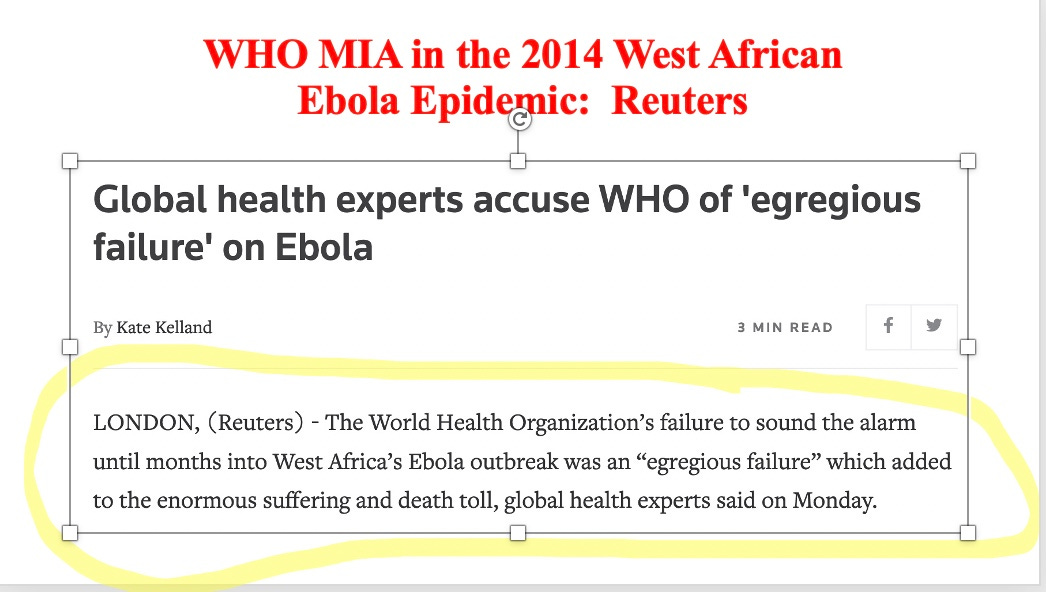
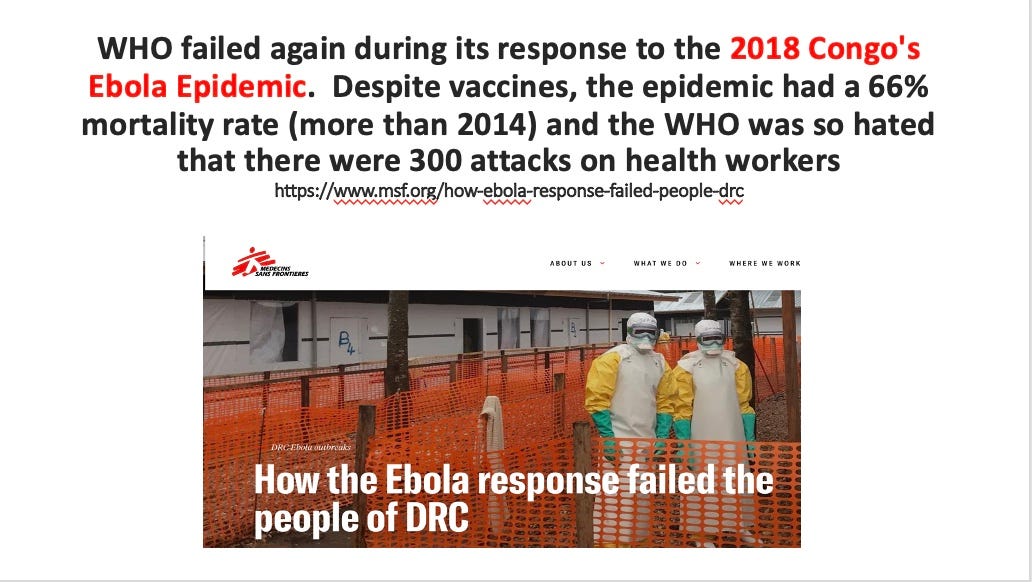
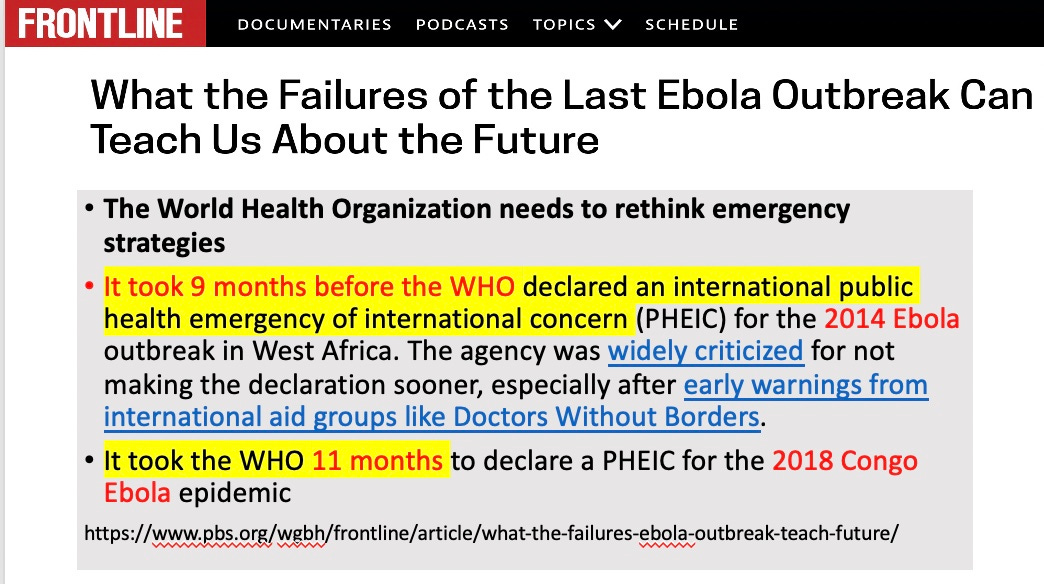
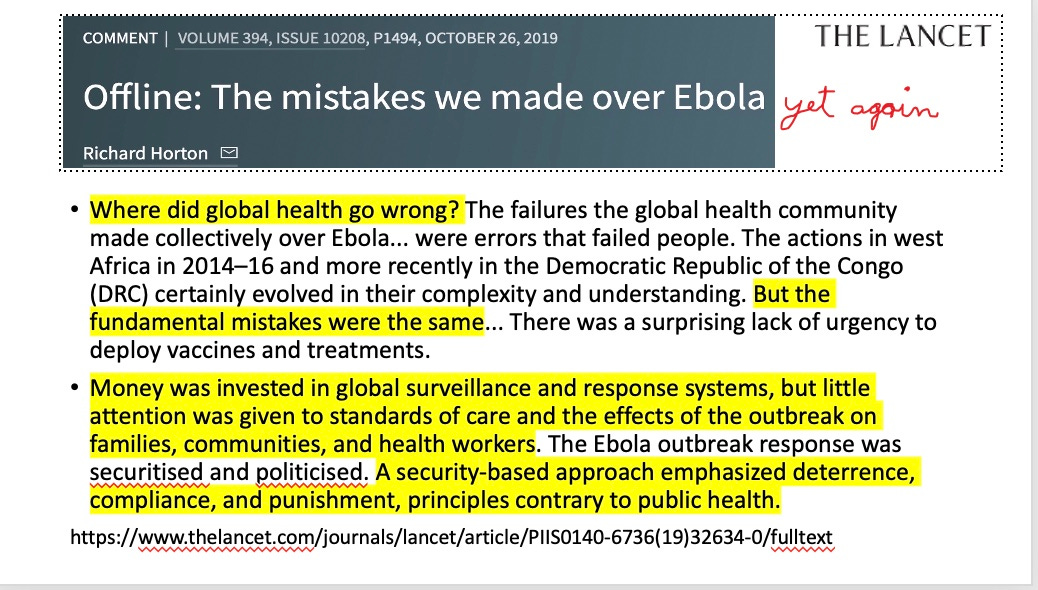
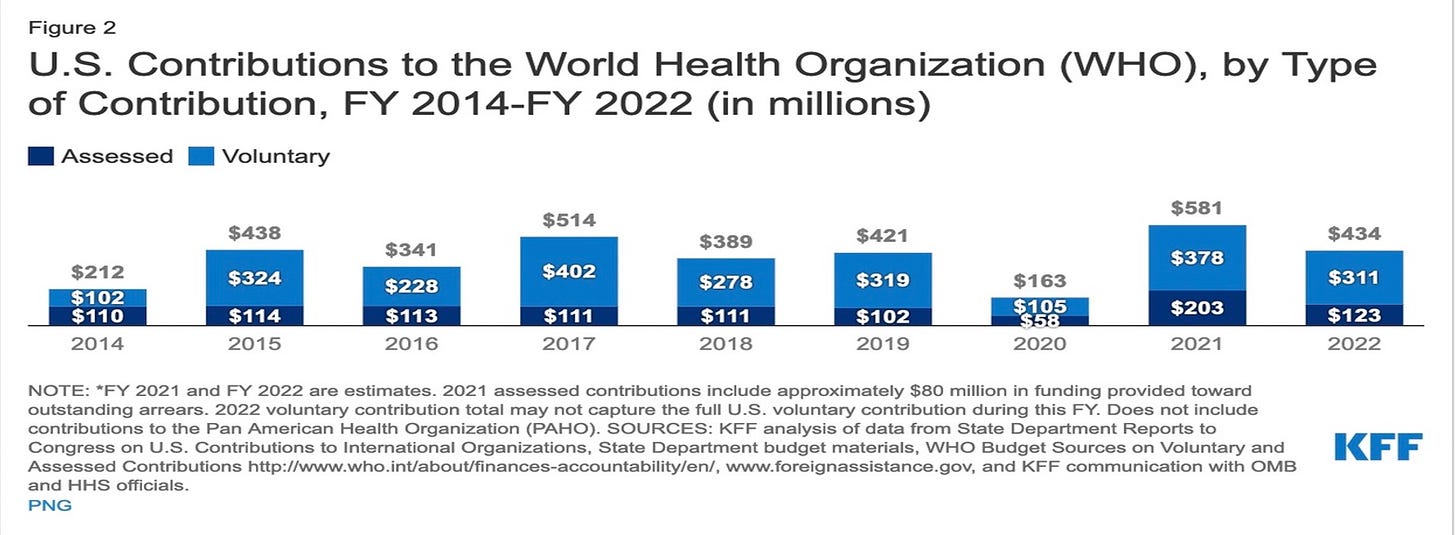
I wouldn’t trust the WHO to organise my sock drawer. I don’t trust anything anymore. No institute, no corporation, no no one. Yer done. You failed spectacularly. Irredeemable.
Definitely need to shut it down. Right along with the UN.